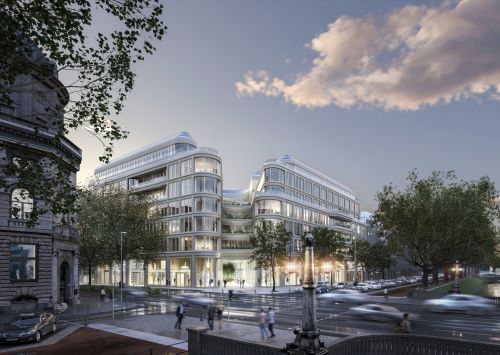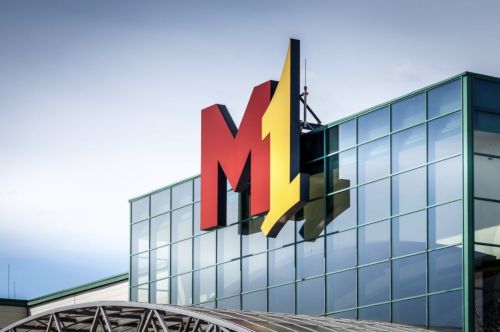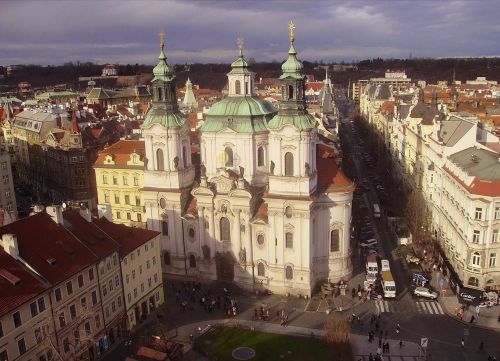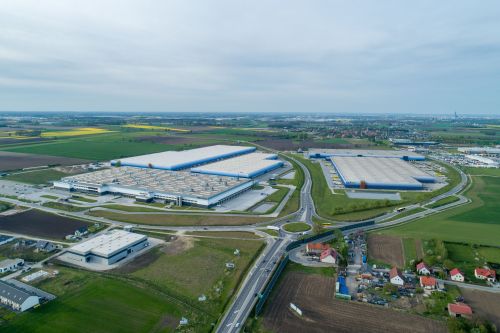Fire in their bellies
EventsAround 160 people turned up on the Thursday morning, paying little heed to the political machinations in Britain, but ready to listen attentively to the first panel, moderated by Alex Kloszewski, the managing partner of Hotel Professionals, on the topic of the consolidation on the market. In his opinion, 5,000 new branded hotel guest rooms are needed in Poland each year for the next ten years, but only half that amount was delivered to the market last year. The panellists included Miguel Martins, Intercontinental Hotels’ development dircetor for Poland, Marybelle Arnett, the vice-president for development in the CEE region for Hilton, Markus Lehnert, the regional vice-president for hotel development of Marriott International, and Adam Konieczny, the development director for Eastern Europe at Louvre Group Hotels. Much of the talk was dominated by a discussion on the concept of soft brands, which provide hotels with the organisation of the larger chains but allow for more individuality. What has resulted is a proliferation of brands, with Marriott International supporting around 30 different brands and Hilton set to introduce its Curio brand to the country.
Next up, it was Martin Thom of CBRE, who took to the stage to moderate the panel that looked into the question of exiting investments. For him the most remarkable deal on the market in recent times was the sale of eight hotels by Warimpex to Thai investor U City, and so he turned to his guest Franz Jurkowitsch, the CEO of Warimpex, for comment. It turned out that three investors had been interested in purchasing the hotels and all three were from Asia. “The platform was more important than the assets,” claimed Franz Jurkowitsch. The others on the stage included Johannes Bauer, who is in charge of asset management at S+B Gruppe, Rudolf Grossmayer, the managing director for SPVs at UBM, Łukasz Kosonowski, the head of the transaction advisory practice at MDDP, and Tomasz Tondera, a senior partner of Griffin Real Estate. Łukasz Kosonowski bemoaned the interpretation changes by the tax office that may require investors to pay back VAT rebates on deals that were closed long ago and maybe even oblige them to pay a further 2 pct tax on transaction values. Despite such impediments, many on the panel saw Poland’s regional cities as the next big opportunity.
After the coffee break, the talk moved on to historic hotels, with the discussion being led by Bożena Szok, the vice-president of the Stowarzyszenie Hotele Historyczne w Polsce [the Polish Historic Hotels Association]. She was joined by Władysław Grochowski, the president of Arche, Mariusz Kozłowski, the general manager of Liebrecht & Wood Poland, Anna Olszyńska, the general manager of Andel’s Hotel Łódź, and Wojciech Popławski, the co-founder of OP Architekten. “Money’s not the most important thing, but you’ve always got to have it,” pointed out Władysław Grochowski, explaining that now his company was firmly established, he has the freedom to pursue his passions. Anna Olszyńska claimed that everyone felt at home in her hotel despite it being a renovated cotton mill. Wojciech Popławski, the architect behind the very same hotel conversion, then took up the mic to explain how the iconic Łódź building, which is well known to most Poles from the Andrzej Wajda film ‘Ziemia Obiecana’ [The Promised Land], was renovated by Warimpex for the Vienna House chain. Finally, Mariusz Kozłowski pointed out how tricky it was to meet the requirements of a brand such as Moxy for the Koneser mixed-use project in Warsaw, when the building being renovated is a listed monument.
The focus then turned to interior design. The moderator of the panel was Aneta Wojciechowska, the editor of Sztuka-wnetrz.pl, who was joined by Barbara Kowzan, an interior designer at Manuttone, Wojciech Witek, a partner of the Iliard design studio, Robert Lenko, the CEO of Kowary Carpets, and Łukasz Wyporski, the business development manager of Digital Systems Osram. Barbara Kowzan spoke of how the reception areas of hotels have been changing, becoming less formal and merging with bars and cafés. Łukasz Wyporski asserted that lighting systems have undergone a renaissance due to the introduction of LEDs. One example of how this has changed everything is how guests now have complete control of how their rooms are lit. Not every hotel should be decorated in such a way as to make guests go “Wow!”, claimed Wojciech Witek. But they should meet the expectations of potential guests.
The next discussion – on brands – was preceded by the only presentation of the day, when Dorota Malinowska, a partner of Pro Value, reviewed all the brands present on the Polish market. According to Janusz Mitulski, the director of international hotel development at Marriott International, there are very few companies on the market that have the expertise to be entrusted with the franchise of a luxury hotel or even one in the upper upscale segment. He also claimed that everyone is awaiting the opening of Raffles in Warsaw, to see whether there is more room on the market for luxury hotels in the capital. Małgorzata Morek the director of franchise development at Accor hotels for Poland, the Baltics, the Czech Republic, Slovakia and Hungary, also agreed. “To be honest, I still don’t know what a lifestyle hotel is,” declared Laurent Bonnefous, the chief development officer of B&B Hotels, pointing out that despite all the individuality of modern hotels, there are still many things that have to be replicated across a brand. Paulina Kołodziejczyk took the opportunity to announce that the Leornado Royal Hotel in Warsaw, of which she is the manager, is soon to be renovated, with the work to end in January.
The final panel of the day, on Poland’s regional markets, was moderated by Maria Zielińska, a senior hospitality advisor at Cushman & Wakefield. She was joined on the stage by Łukasz Goś, representing the City of Lublin, Radosław Altheim, the managing director of Q Hotel, Magdalena Sekutowska, the development director for Eastern Europe at Hilton, Tomasz Piórkowski, the regional director of Vienna House Poland, Adam Pustelnik, representing the City of Łódź, and Przemysław Wieczorek, the investment director of Puro Hotels. The representatives of the two cities presented their locales as places that are open to investors, while Magdalena Sekutowska claimed that there is clearly room on the market to develop hotels in many cities of around 100,000 people, but not in all them.
Fittingly, the very last discussion was about hotel food, since lunch was served in the adjoining room, allowing the guests to network and hold their own informal business talks on a full stomach. But even at the end of the conference, it was clear that they had still not had a bellyful of facts, trends and shared experiences of operating on the region’s hotel markets.






















































